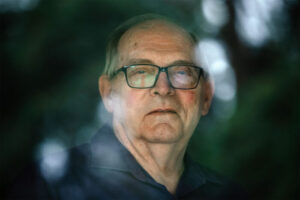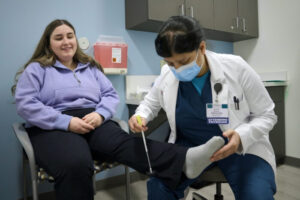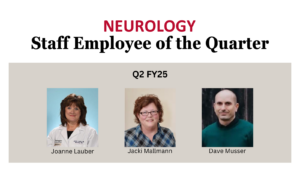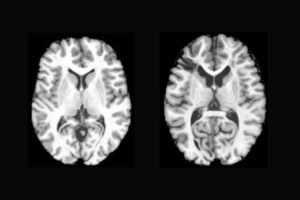Studies have shown that Black children with serious illnesses are less likely than white children to obtain crucial genetic testing necessary to guide treatment decisions, but the reasons for this disparity have not been fully understood. A new study from Washington University School of Medicine in St. Louis focused on children with neurological conditions finds […]
Study highlights barriers to genetic testing for Black children (Links to an external site)









